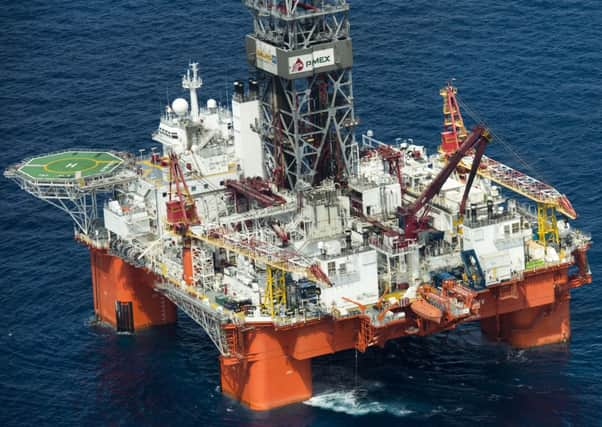£96bn of oil projects under threat


As large discoveries made decades ago begin to deplete, explorers are trying to access more complex and hard-to-reach fields, but the cost of production has risen sharply due to higher prices for raw materials and the need for expensive new technology to reach the oil.
Now the outlook for onshore and offshore developments – from the Barents Sea to the Gulf of Mexico – looks as uncertain as the price of oil, which has plunged by 40 per cent in the past five months to around $70 a barrel.
Advertisement
Hide AdAdvertisement
Hide AdNext year companies will make final investment decisions (FIDs) on some 800 oil and gas projects worth $500bn and totalling nearly 60 billion barrels of oil equivalent, according to data from Norwegian consultancy Rystad Energy.
However, with analysts forecasting oil to average $82.50 a barrel next year, around one third of the spending – or a fifth of the volume – is unlikely to be approved, said Rystad Energy head of analysis Per Magnus Nysveen.
“At $70 a barrel, half of the overall volumes are at risk,” he added.
Chevron’s Rosebank project in the North Sea is among those with a shaky future and a decision on whether to go ahead with it will probably be pushed late into 2015 as the company assesses its economics, analysts said.
“This project was not deemed economic at $100 a barrel so at current levels it is clearly a no-go,” said Bertrand Hodée, research analyst at Paris-Based Raymond James.
Chevron said: “The Rosebank project is in the front end engineering and design phase. The review of the economics and the additional engineering work is progressing. It is premature to make any statements on an FID date.”
New oil fields typically require four to five years to be developed and billions of dollars before the first drop of oil is produced.
Any cutbacks in production bodes ill for international oil companies that are already struggling to replace depleting reserves as exploration becomes harder and discoveries smaller. It also points to tighter supplies by the end of the decade.
Advertisement
Hide AdAdvertisement
Hide AdOn Wednesday, Chancellor George Osborne announced a cut in the rate of the supplementary charge on oil companies’ profits from 32 to 30 per cent, arguing the move “demonstrates our commitment to the tens of thousands of jobs that depend on this great British industry”.
The UK government says there is still “significant hydrocarbon reserve” in the UK Continental Shelf, which could “generate significant benefits” for the country if it can be recovered. It is estimated there could be up to 21 billion barrels of oil equivalent remaining offshore, of which 15 to 16.5 billion is thought to be recoverable.
Bob Ruddiman, head of energy at law firm Pinsent Masons, said: “The Treasury clearly recognises the major issues the industry faces.
“It has started the journey with a small tax reduction but further tax concessions and making the system less complicated must follow, if we are to maximise exploration and ensure both security of supply and optimal recovery of a critical natural resource.”